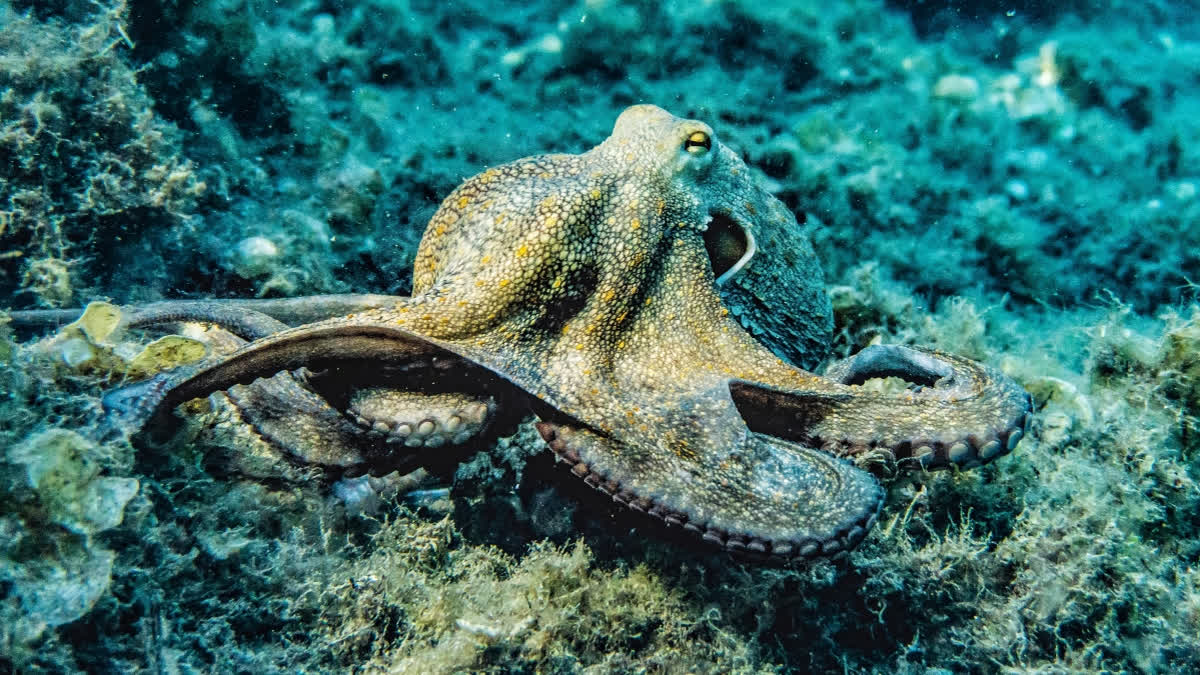New Delhi: The quiet slumbering periods of octopuses' sleep have been observed to be interrupted by frenzied activity, such as twitching of arms and eyes and quickening of breathing rate, highlighting remarkable similarities between sleeping behaviours of octopuses and humans. Examining neural activity and skin patterning in octopuses during this active period of sleep, researchers found them to resemble those seen when the octopuses were awake, terming it 'wake-like' activity.
Wake-like activity also occurs during rapid eye movement (REM) sleep in mammals, or the sleep phase associated with dreaming. "All animals seem to show some form of sleep, even simple animals like jellyfish and fruit flies. But for a long time, only vertebrates were known to cycle between two different sleep stages," said senior author, Sam Reiter, who leads the Computational Neuroethology Unit at OIST.
The team also discovered that preventing their sleep or disrupting their active sleep phase only led to the octopuses later entering active sleep sooner and more frequently, thus, "nailing down the active stage as being an essential stage of sleep needed for octopuses to properly function," according to Aditi Pophale, co-first author of the study published in the journal Nature and PhD student at OIST.
Studying the brain activity of octopuses, the researchers saw sleep spindles, which are brain waves typical of non-REM sleep in mammalian brains, during quiet sleep. They further determined these waves to occur in octopuses' brain regions associated with learning and memory, suggesting a similar function of these waves in humans, they said.
Also read: Scientists find gene preventing bird flu virus from spreading to humans
Roughly once an hour, the octopuses were observed to enter an active sleep phase for around a minute, when the octopuses' brain activity very closely resembled their brain activity while awake, just like REM sleep does in humans. "The fact that two-stage sleep has independently evolved in distantly related creatures, like octopuses, which have large but completely different brain structures from vertebrates, suggests that possessing an active, wake-like stage may be a general feature of complex cognition," said author Leenoy Meshulam, a statistical physicist at the University of Washington, who helped design the research.
The research group also captured and analyzed the changing skin patterns of the octopuses when awake and asleep in ultra-high 8K resolution, allowing them to see how each pigmented cell behaves in order to create an overall skin pattern. When awake, the octopuses use these patterns for camouflage in different environments, and for communicating in social or threat settings, such as warning off predators. During active sleep, the octopuses cycled through the same skin patterns.
One theory, the researchers said, is that they may be practising their skin patterns to improve their camouflage behaviour, or simply maintaining the pigment cells. The octopuses may even be dreaming, the researchers ideated. "In this sense, the octopuses' skin pattern acts as a visual readout of their brain activity during sleep," said Reiter. (PTI)


